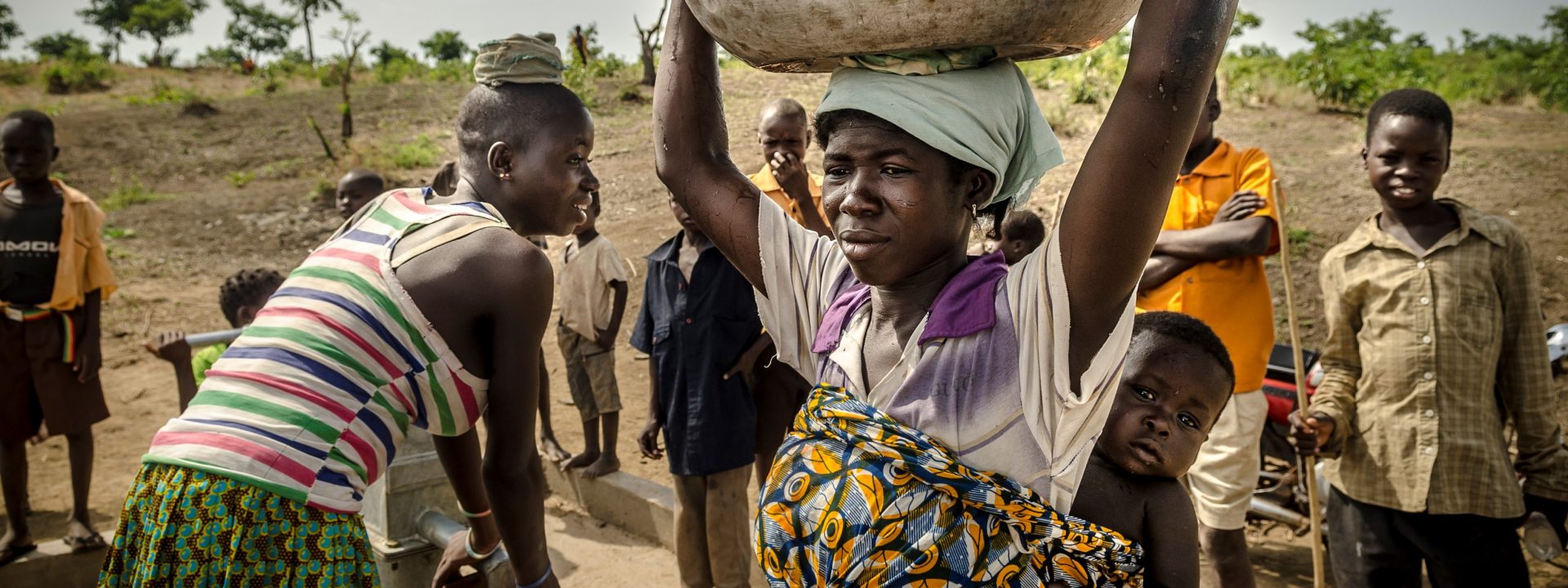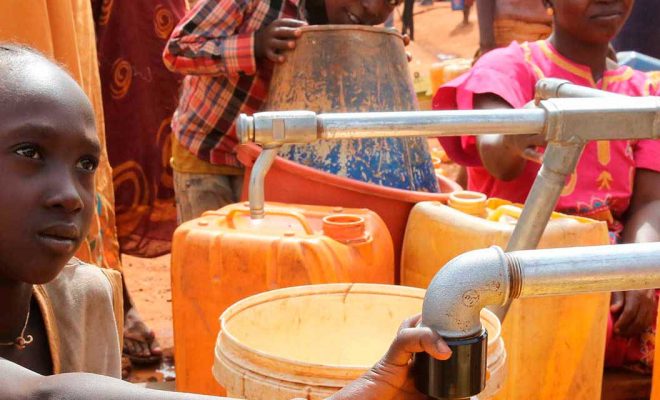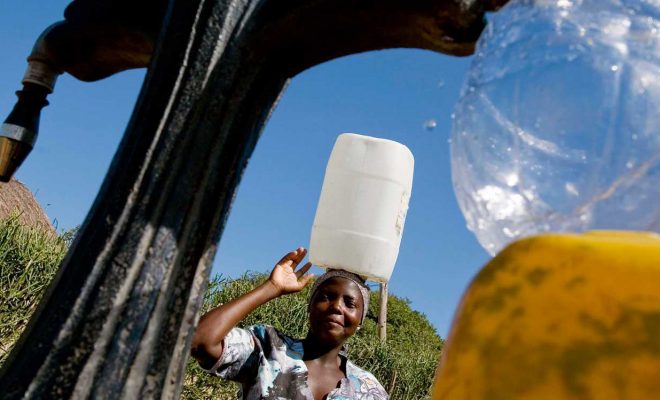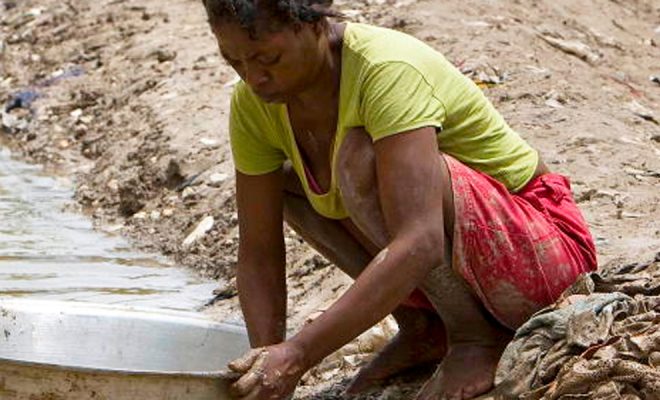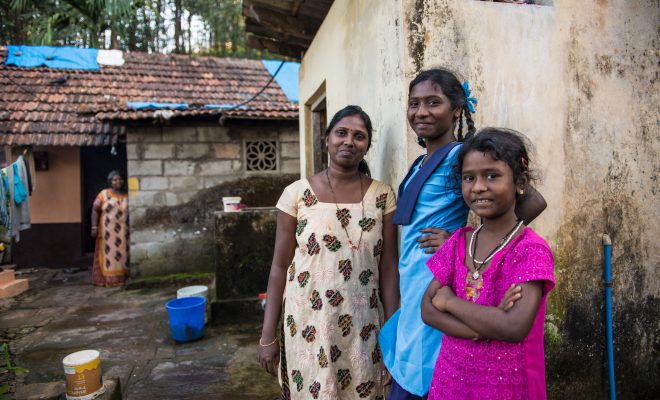Crises affect those who start from the most disadvantaged positions the most. In poor countries, the pandemic is targeting women, the group that has always been on the front line fighting for the access to water and sanitation. Women are key in droughts, fetching and distributing the little water available; they are the backbone of their communities in famines, rationing food and managing the nutrition of their families; they manage water sources and wells and in the event of natural disasters, they are the foundation of reconstruction and resilience. Now their situation is more difficult than ever.
Walking is more difficult
Among the 2.1 billion people on the planet who have no non-polluted water supply located at the place of use and available when needed, more than 800 million have to walk more than 1,000 meters from their homes to fetch water. Most of them are women and girls. Covid-19 has worsened this situation, as many of them have had their mobility restricted by the government or simply by fear of contagion. In nearly all countries in Africa, Asia and Latin America, authorities have mobilized a fleet of water trucks to distribute water and hygiene elements, such as soap. But aid distribution is not always accurate, as in many cases it does not reach the households that were already receiving it. All around the world the number of people with no household soap and water services reaches 3 billion
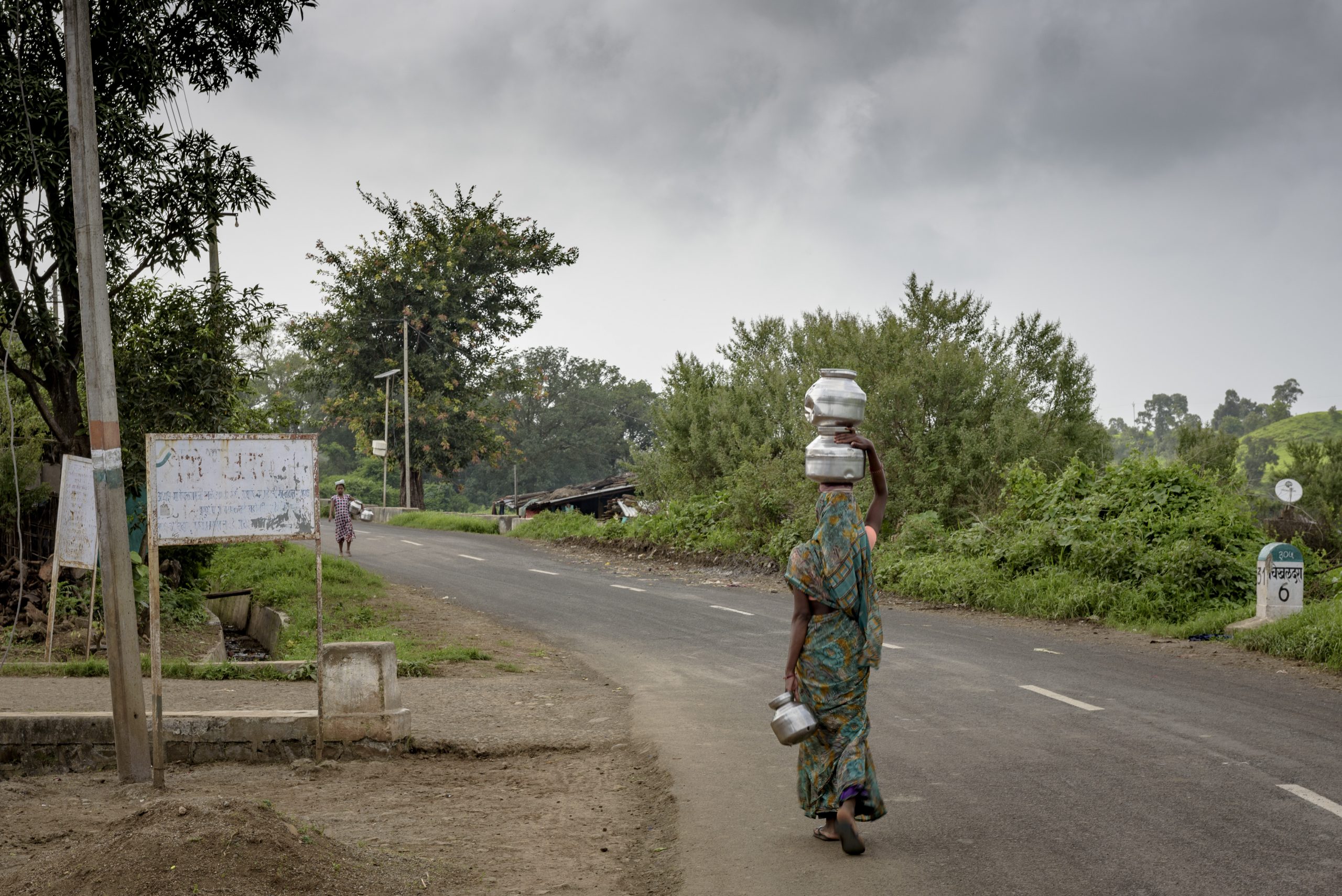
More than 800 million have to walk more than 1,000 meters from their homes to fetch water. Most of them are women and girls. © Carlos Garriga / We Are Water Foundation
The same women who have to carry water are the ones who cook and therefore become a bulwark in community hygiene. Thus, the situation with regard to the access to water and hygiene of millions of families all around the world has worsened with the pandemic. The objective of #NoWalking4Water is now more meaningful than ever.
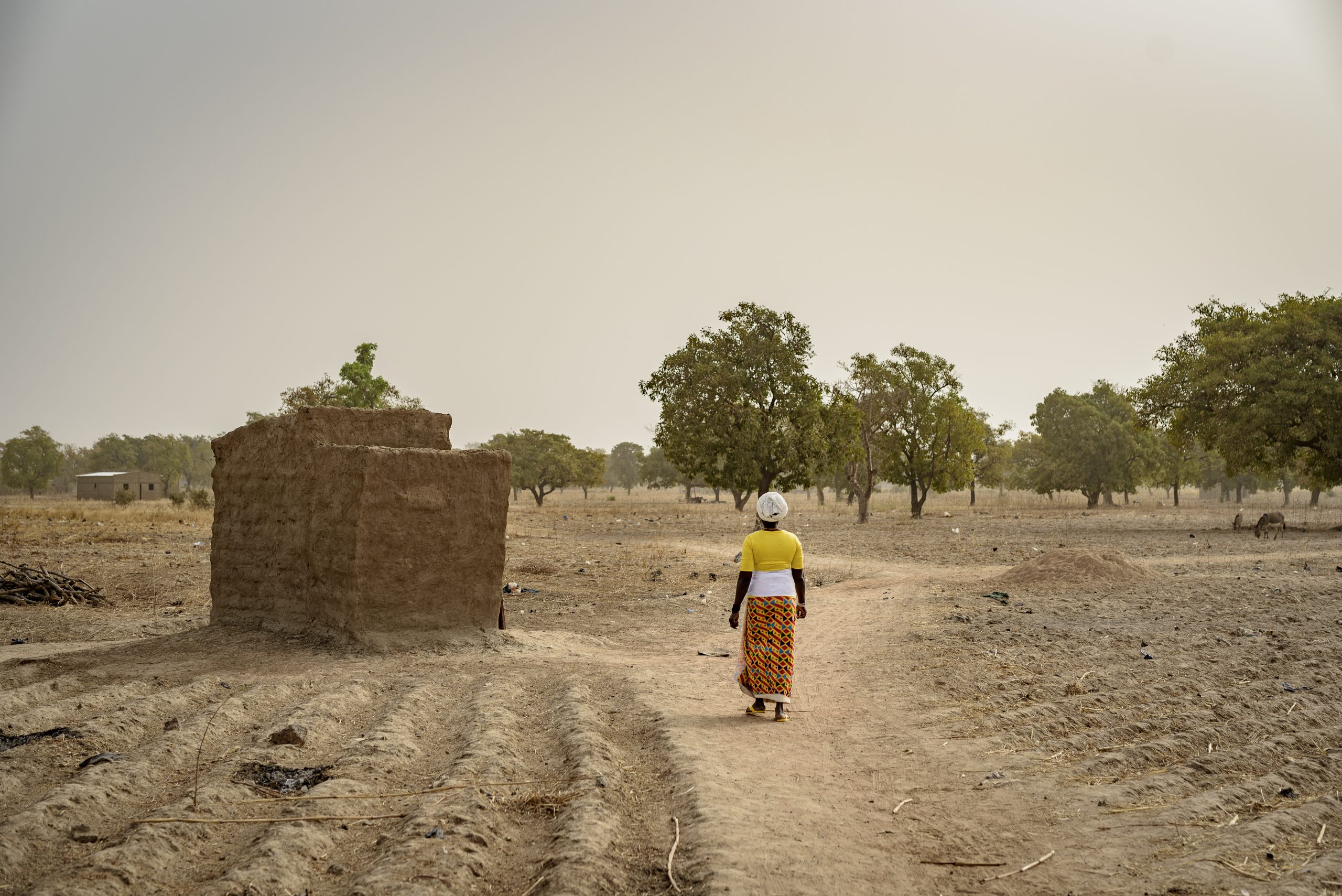
Woman accessing a latrine in Burkina Faso. © Carlos Garriga / We Are Water Foundation
Women forgotten by sanitation
Among the estimated 695 million people who defecate in the open, women suffer the worst consequences. Their lack of empowerment often prevents their rights to privacy, safety and hygiene from prevailing. This problem is particularly offensive in India, mainly among women who belong to the lowest castes, whose social exclusion emphasizes the problems they suffer due to the lack of access to water, toilets and hygienic education.
The fight against the pandemic has blocked many of the programs to combat this scourge. The chaotic implementation of the lockdown measures in many poor countries has created an additional problem for those who need to leave their shack in urban slums to relieve themselves. The absence of intimacy forces most women to postpone their physiological needs until night time, but the risk they run is high: they are exposed to vermin attacks, theft and sexual assault. In the poorest areas of India, as in the villages of the Anantapur district, where the We Are Water Foundation collaborates with the Vicente Ferrer Foundation in sanitation projects, it is common for women to have to travel up to one kilometer in the dark, in the early hours of the morning, to reach open spaces.
Hygiene justified lockdown measures are totally contradictory for them. Not being able to go into the undergrowth or to open spaces in groups, as they used to do to defend themselves, women are more exposed to criminal attacks. If they do not expel their feces or urine when their bodies ask for it, they are predisposed to suffer multiple diseases and chronic malnutrition due to inadequate functioning of the digestive system, with consequent immune deficiency. According to a 2013 public health report by the Indian government, in the state of Andhra Pradesh, where Anantapur is located, 33.5% of women are under the ideal weight recommended by the WHO, and 63% of single women between the age of 15 and 49 and 56,4% of pregnant women suffer from anemia. These are much higher figures than those of men of the same economic level, which reach around 20%. In the same year, over 1.7 million cases of diarrheal diseases were reported in Andhra Pradesh, more than half of them in women.
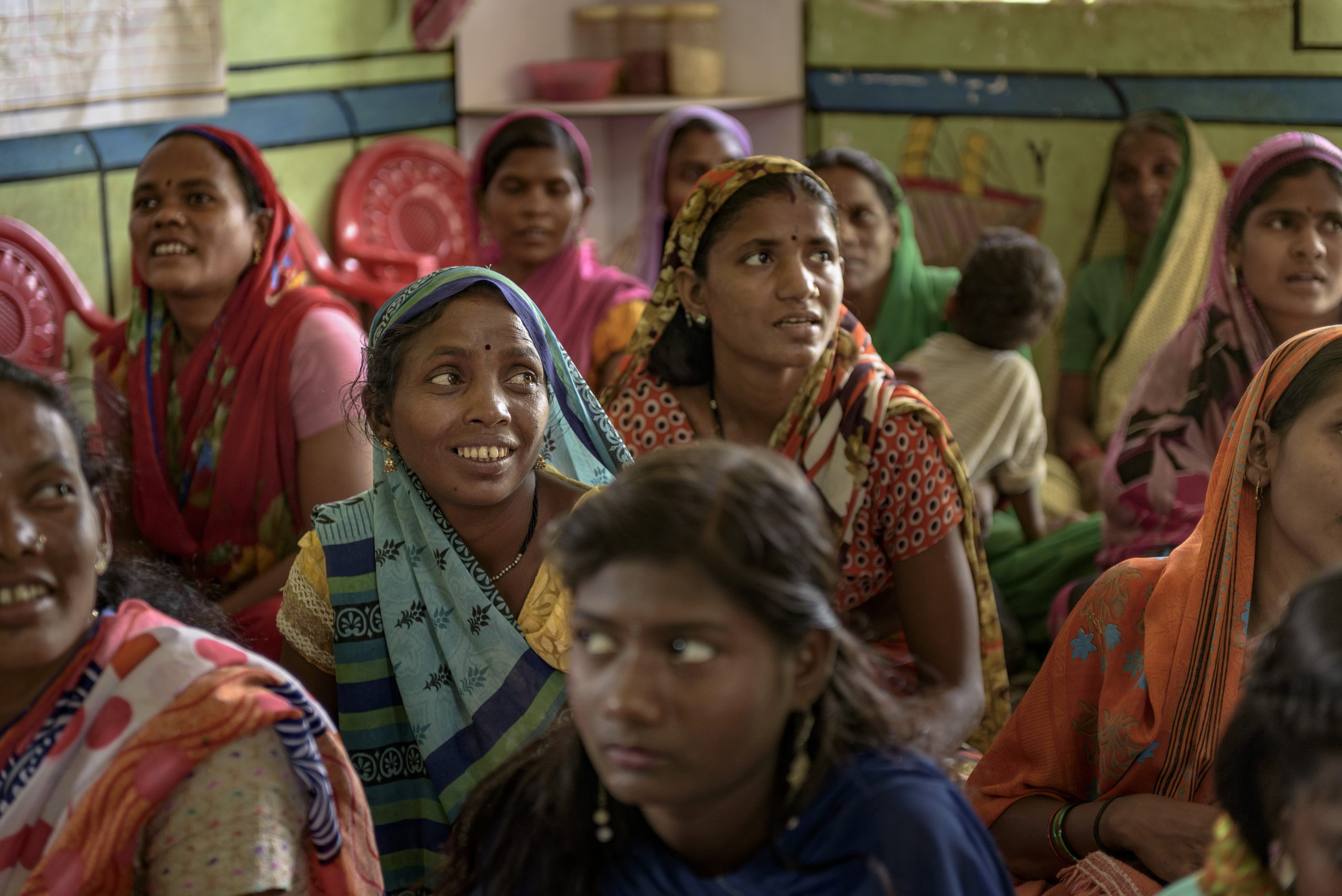
About 60% of the women work in the informal economy, which exposes them even more to poverty. © Carlos Garriga / We Are Water Foundation
Many women do not exist
The outbreak of the pandemic has revealed another endemic problem in the poorest countries: the lack of reliable censuses in the most neglected areas, which makes a large part of the nomadic and migrant population “invisible”. In some African countries, women and girls are further marginalized by sexist statistics that do not count those who give birth before the age of 15, because they are not considered of reproductive age.
This problem has seriously affected the effectiveness of water access aid programs, as it has not been possible to accurately count the hours women spend fetching water, cooking or ploughing the land. Now it also hinders health strategies to curb the pandemic. If they are not aware they exist, or where they live or what they do, they cannot help them.
Something similar happens in plans to promote urban hygiene. The lack of updated information on water access makes effective governance impossible in the slums of large cities, where many people who have been forced to drill wells or use surface water and who escape all health controls, are not included in official records.
Victims of the informal economy
The sharp reduction in economic activity generated by the pandemic has severely affected informal workers who, according to the World Bank, are more than 2 billion in the world. They subsist with temporary jobs, without contracts, in the industry, agriculture and services; most of them are street vendors or do the hardest and unhealthiest jobs; and almost all garbage collectors are within these workers. In the poorest countries this marginalized group reaches 90% of those who work.
About 60% of the women work in the informal economy, which exposes them even more to poverty. A significant case, which is not only endemic in poor countries but also in rich ones, is that of domestic work. According to the International Labor Organization (ILO), three quarters of the 67 million domestic workers in the world are informal and most of them are women. The lockdown has left most of them on the streets.
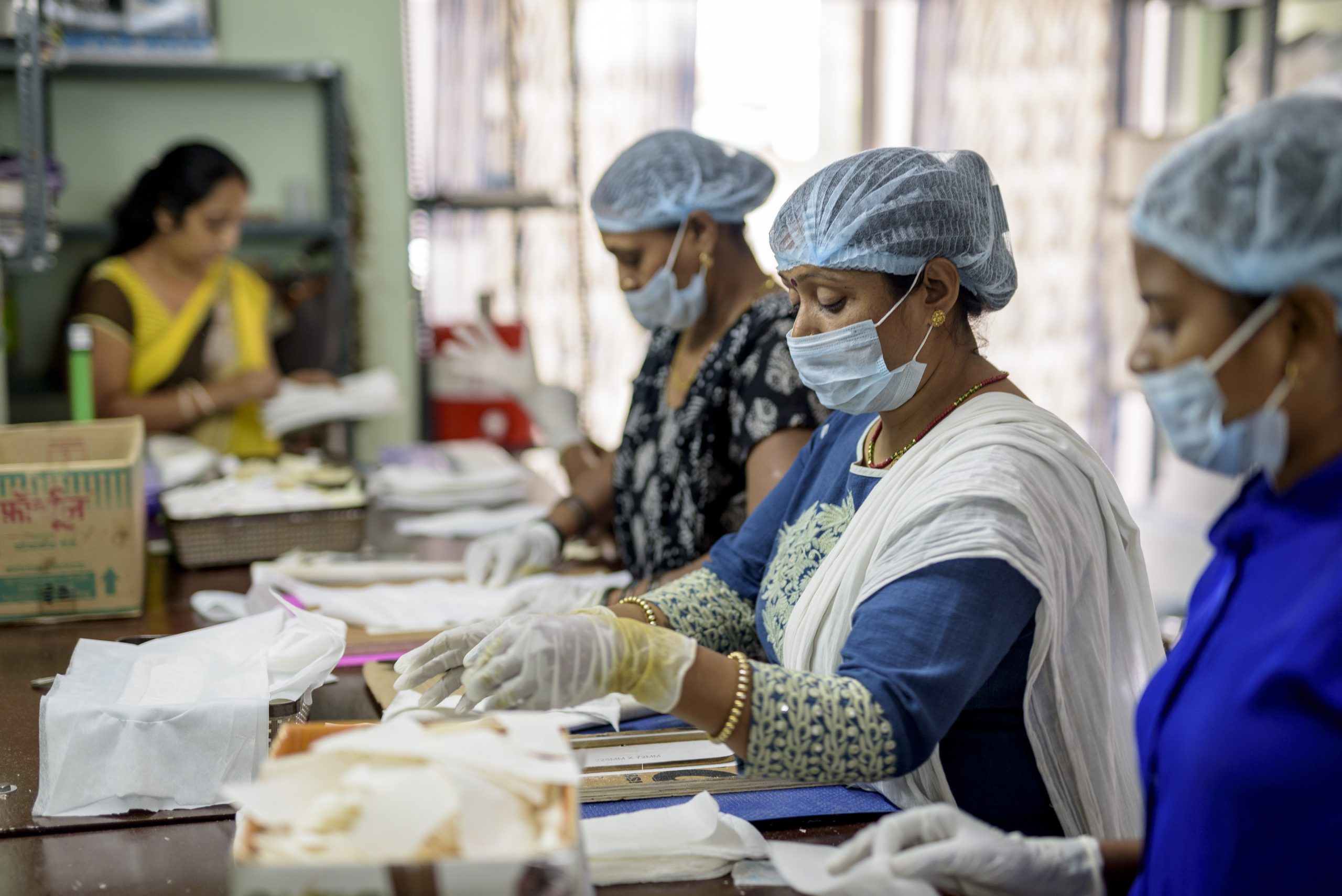
Developing women entrepreneurs by inculcating skills in them for making sanitary napkins, through Personal Hygiene and Sanitation Programme in Haiderpur Haryana, India © Carlos Garriga / We Are Water Foundation
On the front line of the pandemic, despite misogyny
Women are on the front line to fight the pandemic, and every health crisis has a particular impact on them. It happened with zika in Latin America and with Ebola in Africa, when millions of women took on the responsibility of caring for the sick. Almost always, the lack of investments in health systems and in dependency aid makes women the shock force that cushions the lack of medical resources. In the last Ebola outbreak in Africa, in many cases the women working in field hospitals were the ones in charge of fetching water for the sick, while at the same time they had to take care of their children in spite of the risk of infection. According to the WHO, two thirds of the people infected with Ebola during the outbreak were women.
Now, during the coronavirus pandemic, women once again bear the brunt of the health struggle in medical centers and in their homes. Women’s unpaid care work has significantly increased as a consequence of the closure of schools and the increased needs of the elderly.
And in many countries they do it in spite of the cultural taboos that exclude and stigmatize them. In some cultures, like in India, the taboo of menstruation remains a social scourge that affects millions of women and significantly harms those without adequate sanitation for their privacy and basic hygiene needs. Also, in some societies, widows and raped women are the ones to be socially condemned. Now, with the pandemic, their future is much more uncertain.
Covid-19 could reverse the meager gains reached in terms of gender equality and women’s rights that make up Sustainable Development Goal number 5. We cannot tolerate this. The struggle for access to water and sanitation has shown us that no solution is possible without women being at the center of the response. This is a key factor for the success of any health and economic recovery strategy.


